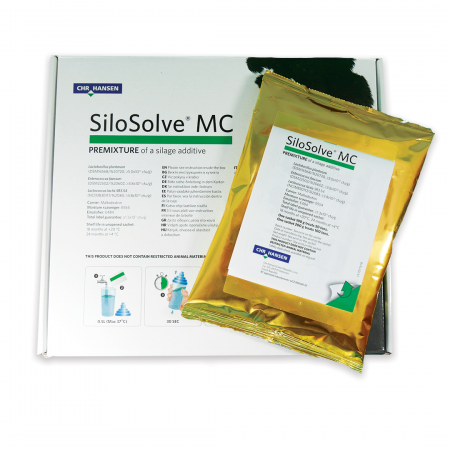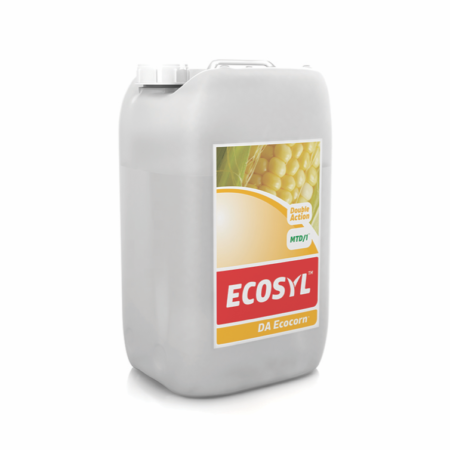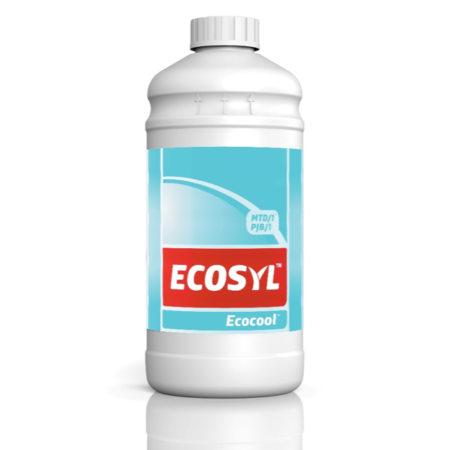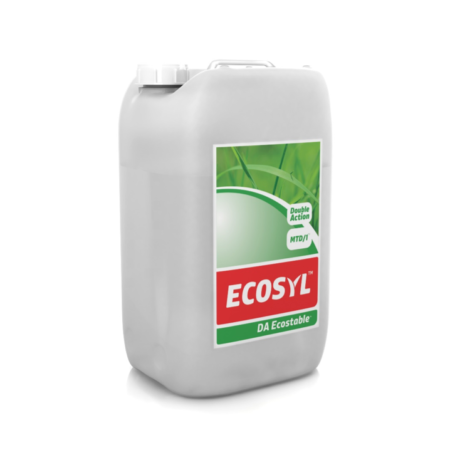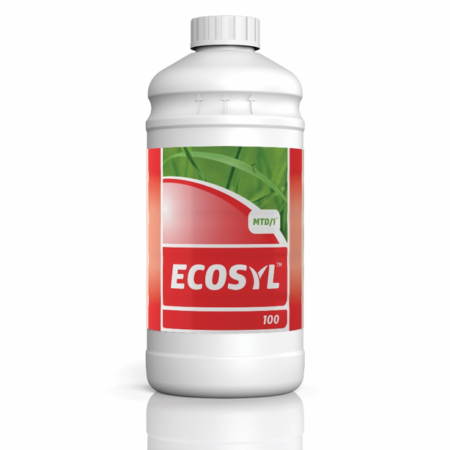Description
Where harvesting conditions are less than ideal because of either a poor weather window, late application of slurry or nitrogen, or the risk of soil contamination is high, then using SiloSolve MC would be recommended over SiloSolve FC.
When these risks are present, the opportunity for clostridial fermentation is greatly increased. Clostridia bacteria consume carbohydrates, protein and lactic acid as their energy source, which leads to a lower nutritive value silage with poor intake potential because of the butyric acid produced. Feeding silage to dairy cows that has undergone clostridial fermentation increases the risk of reduced dry matter intakes, reduced milk yield, milk taint, reduced feed efficiency, increased metabolic disorders and increased potential for jejunal haemorrhaging (sudden deaths). Therefore these conditions should always be avoided where possible, however, when this isn’t possible SiloSolve MC would be the silage additive of choice.
SiloSolve MC contains a different strain of Lactococcus lactis (SR3.54) and Enterococcus faecium that specifically target thermoduric bacteria, keeping clostridia and other undesirable bacteria at bay. This results in less protein breakdown and lower ammonia nitrogen levels in the ensiled product, along with the benefits of improved aerobic stability seen with SiloSolve FC.
Please note the use of silage additives cannot be expected to overcome poor silage making practices, highly adverse weather conditions or unsatisfactory feeding-out procedures.

